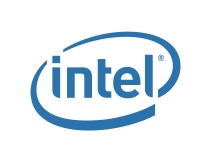We’re currently living in an age where we as a population are less impressed by new technological advances. The computer age sped up the rate of invention and innovation, and children of this age are tuned to simply be less impressed. The high frequency of viable new inventions and incredible innovations made us grow accustomed to them. Amazingly, we actually expect new inventions and innovations to drop at an alarmingly high rate, and rarely, nowadays, do they impress, even though they should. However, another way to look at our collective apathy toward modern day invention and innovation is to wonder if, possibly, the technological age in which we live redefined what it means to be innovative; so it’s not that we’re less impressed by innovation, but we don’t necessarily know what it means to be innovative anymore.
Max Eddy:
To those of us regular folk, “genius” seems completely impenetrable, but at the same time, startlingly simple. When looking at the innovative work of someone like Steve Jobs, something like the iPod seems both obvious (people want to carry their MP3s with them, it’s so simple!) and unfathomable (you’re a computer company, why on Earth would you build a music player?!). In this case, all the pieces of an iPod already existed — the technology and the market were there. It just took an innovative mind to put them all together.
Music could be an equally apt comparison. In a song — or at least a good song — each note fits perfectly with the one preceding and the one following. Each instrument enters and exits in a way that makes sense, even if it’s off-beat and challenging. Taken in this light, a song seems obvious, even natural — something so logical, that it simply must exist. With music, too, each note existed prior to the creation of every song. All the pieces were there, it just took an innovative mind to turn a collection of sounds into “Yellow Submarine.”
Perhaps this speaks to the nature of innovation: That is requires a leap of faith into the obvious
Eric Limer:
Some things get a bad rap. Innovation isn’t one of them. No, innovation gets a good rap, a good rap it doesn’t necessarily deserve. Don’t believe me? Okay, let me try and dig myself out of this hole. Sure, innovation is about making history. It’s about changing the playing field forever. It’s about doing something so amazing that no one will ever think about your subject matter the same way ever again. And that’s all great, but you know what else it’s about? It’s about getting totally humiliated when you do it. As far as I’m concerned, being ceaselessly mocked is the first and possibly most important step of innovation.
If everyone thinks your idea is great from the get go, good for you; you’re clever. “Let the record show that Steve Jones found a really good way to make ham sandwiches!” Good luck being remembered years down the line. No, if you’re being innovative — really innovative — it’s pretty much guaranteed that everyone will think your idea is really, really stupid. Like, really stupid. They won’t be quiet about it either. They will tell you, everyone they know, and everyone you know, that they think your idea is stupid. They will do it loudly. Remember when the Wii got announced? Let’s not even touch on the name issue. Remember when you were like “waggling sounds stupid”? Do you? And how many waggles have you waggled since then? How many waggles has everyone waggled? How many waggles will we waggle while we waggle our way into the future? And what about the iPad? “It’s just a really big iPhone and that’s horrible.” Was it? You’ve probably changed your tune now. If you haven’t, you’re pretending to be one of those people who saw through the haze from the start. You probably aren’t, but maybe you think you are, or maybe you’re just embarrassed to admit you were fooled like the rest of us. That is the real beauty of innovation.
A clever discovery can go over well with everyone. An innovation looks stupid at the start but is, in fact, so good that it makes everyone go back and eat their words. It practically crams those words back into your gullet. Innovation isn’t that clean, sleek thing that everyone thinks they want. Innovation is a violent, primal beast that takes your expectations and beats you over the head with them repeatedly. The beauty is that you learn to love it and keep coming back for more.
James Plafke:
Innovation isn’t just about making a new product the public fawns over, nor is it solely about finding a new, simple way providing some sort of service — two notions that the usually get something classified as “innovative.” While those two notions are fine prerequisites for launching something toward the lauded “innovative” classification, an important addition would be that something innovative can’t just be weird and new for weird and new’s sake. Both Max and Eric touched on this above. The iPod didn’t quite bring anything weird to the table, it was a simple device designed to provide a simple service, and it succeeded. The Wii, though it lacked strong software sales, took a simple idea that Nintendo could’ve easily made more convoluted and odd and left it simple — swing a controller around and the screen correctly reciprocates, and it succeeded.
The notion of not being weird for weird’s sake applies to things outside of the technology arena as well. The most popular television shows, movies, and video games are usually the most regular — not bad, but regular. This normalcy reaches such heights of success simply because of that, it is normal, and it can reach the widest range of people. This sentiment, oddly enough, is what every truly innovative device encapsulates.
The weirder things become, the more likely they’ll sacrifice usefulness in order to break apart from the pack and get noticed, but that doesn’t innovate, that just makes something useless.
If you think you have the next big idea, pitch it to Intel. Intel Innovators is a community inside Facebook that connects young people “inventing tomorrow” to young people who want to have a hand in projects. Every month, for three months, an expert panel will award one “Innovator” $50,000 and one fan will win the right to determine which Innovator gets another $50,000. Think you can spot a big idea? Pick it. Do you know someone with a big idea? Nominate them.
Be sure to get your big idea to Intel by 12:00pm EST on December 13th, 2011 for a chance to win some big money to help you achieve it.
Join the conversation on Twitter with #IntelEmp.










Published: Dec 9, 2011 03:12 pm